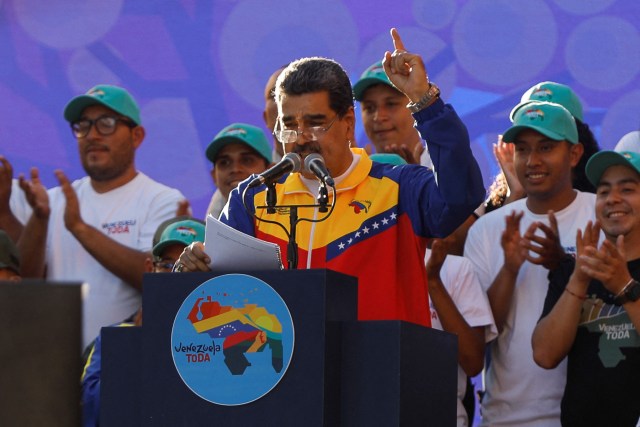
The history of the turbulent relationship between Venezuela and transnational oil companies for more than 15 years has just begun a new chapter.
Angel Bermudez || BBC World
On December 5, Nicolas Maduro announced that he would propose a special law prohibiting the employment of “companies that operate or cooperate in the unilateral concessions granted by Guyana in the demarcated sea” between the two countries.
“I propose a three-month deadline for all these companies to withdraw from these operations.”“Maduro said of the base that seeks to make it difficult for Guyana to continue oil projects it is developing in front of Essequibo, an area controlled by Georgetown but which Caracas claims as its own.
The Chavista leader's announcement came two days after a referendum was held to consult with citizens, among other things, on the creation of a Venezuelan state in that disputed region, as well as on the rejection of the Paris arbitration decision issued in 1899. It established the border between the two countries, but Venezuela considers it invalid.
In 1962, Venezuela reactivated its claim to Essequibo before the United Nations and denounced the arbitration award. This led to the signing of the Geneva Agreement in 1966, through which Venezuela and Guyana committed to searching for a practical and satisfactory solution to the conflict.
But given that the good offices mechanism they had resorted to for more than a quarter of a century had not led to a solution, Georgetown in 2013 requested that the case be taken to the International Court of Justice, where it would be decided. .
At the same time, Guyana has begun granting oil exploitation concessions in unchartered waters to which Venezuela believes it has rights.
The Maduro regime rejects the jurisdiction of the International Court of Justice and appears to be trying to stop oil exploitation in Guyana, and threatens the transnational companies that have obtained those concessions.
However, the latest warning may also have negative effects on Venezuela's oil production.
More details in BBC World






More Stories
Nicaragua picks up and delivers to El Salvador four subjects circulated by Interpol
UN experts have warned of serious human rights violations in the context of the presidential elections scheduled for July 28 in Venezuela.
The Organization of American States deploys observers for the US elections